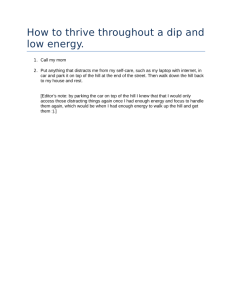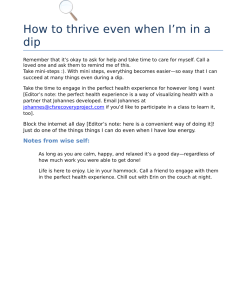Even though this article is part of a series on how to use a smartphone to improve your health and life, you don’t actually need a smartphone to benefit from it. While a smartphone makes the strategy you’ll learn in this article more convenient, a pen and paper are enough to make it work!
Have you ever noticed since you’ve come down with Chronic Fatigue Syndrome (ME/CFS) or Fibromyalgia (FM), that completing even the most mundane tasks can overwhelm you and send your mind reeling?
If you have, it’s likely that you suffer from the cognitive symptoms that are common in ME/CFS and FM.
But what exactly is going on and—most importantly—what can you do about it?
I’ll provide some techniques that work for me in this article. Let’s begin by looking at three common everyday tasks most of us tend to struggle with.
Do you also struggle with one of these seemingly simple tasks?
Here are three simple scenarios that easily throw me into a tizzy. Can you relate to them?
- Making lunch. It’s lunchtime and my stomach starts to peep. But what should I eat? Somehow I can’t remember. How can I make lunch without getting stressed out by it? Ever since I came down with ME/CFS, even simple tasks, such as making lunch, sometimes seem daunting.
- Taking a shower. Processing complex, multi-step tasks is difficult, and even taking a shower has its complexities. We have to remove our clothes and bend over to do that (not good for many with ME/CFS), get the water temperature adjusted, wash, dry off, etc. Plus showers are known triggers of autonomic nervous system problems in people with ME/CFS. By the time I was done with a shower, mind had begun racing a hundred miles an hour, and I had to meditate in order to regroup.
- Overcoming a period of worsened symptoms. I really used to struggle when I experienced a dip; i.e., a period of worsened symptoms caused by post-exertional malaise or simply from the natural fluctuations of my illness. I found that the ways in which I live when I’m better don’t work when I’m feeling worse. For example, I’m very good at doing my ‘self-care’ such as my daily meditation when I’m feeling better, but poor at doing it when my energy is down. I tend to get lost in the slightest distractions, such as reading a book or surfing the web. Neglecting my self-care, though, leaves me less able to deal with my more-fatigued-than-usual body.
Why Do We Struggle With These Situations?
One obvious explanation for our struggling is that we’re suffering from cognitive difficulties. It has frequently been observed that people with ME/CFS and FM have problems with short-term memory, brain fog, and a reduced tolerance to emotional and physical stress.
Another reason is that our illness has made previously simple tasks, such as preparing lunch, much more complex. Instead of just grabbing a bagel and spreading cream cheese on it, making lunch might now consist of many more steps. For example, we now also have to take our pills and consider the complexities of preparing a healthier meal.
And then we have to deal with our changed body during a dip. It it’s been a few weeks—or hopefully months—since our last dip, so we simply don’t remember what worked for us the last time we felt this way.
What To Do About It
What if you had easy technique that helped you overcome these kinds of challenging situations?
Let me introduce you to a very simple technique that can have a surprisingly powerful impact …It’s ..
Making Lists
Yes, Making lists! Everyone knows how to do them, but many people are probably not aware of what a powerful tool they can be. Let me illustrate:
Example: Overcoming a Dip
Here’s what I find challenging in ‘dips’, relapses, ‘crashes’, etc. Let’s have a close look at these challenges first, before I walk you through the three simple steps of overcoming these challenges with the help of lists.
- My increased difficulty focusing and my decreased willpower cause me to end up surfing news sites instead of doing what I had initially intended to do on the computer.
- When I want to take a rest, my increased fatigue and decreased ability to think cause me to just lie in bed listlessly instead of engaging in the types of rest that I need to feel better (for example meditating).
- When I want to keep one of my daily responsibilities, for example making dinner for my spouse, my decreased energy and willpower cause me to procrastinate and, ultimately, fail at it.
The common theme here is that through the dip, I have less energy, more fatigue, and less willpower than usual, which makes any area of my life more difficult to deal with.
Making lists has helped me tremendously in overcoming the challenge of a dip. Here are the three steps I use to overcome the challenge of getting through a dip, and how you can do it, too.
Step 1: Discover Solutions to your challenge
In this step, you simply write down on a piece of paper (or empty Word document) anything you can conceive that might help you with overcoming your challenging situation.
Example:
Remembering how much I struggle with distractions when I’m in a dip, the first thing I wrote on my list was, “block the internet and put books out of the reach of my bed and couch.”
Now it’s your turn: Choose a situation related to your health that’s challenging for you. Then take a minute to brainstorm anything you can think of that might help you better deal with the situation.
If you can’t think of any solutions: Step 1a
This next part, step 1a, requires lots of mental stamina. My suggestion: skip this part for now and only return to it when you have energy left once you’ve reached the end of this article and made your first simple list. The good news is that for many simple lists, you don’t even need this part.
Thinking of solutions comes easily to me because, as a health coach for ME/CFS and Fibromyalgia, it’s what I do all day everyday anyway.
If you find it more difficult to think of a solution to your challenge, here are three ways in which you can still succeed:
- Books and articles from experts. I recommend Erica Verillo’s book, Chronic Fatigue Syndrome: A Treatment Guide, 2nd Edition and Fibromyalgia for Dummies by Roland Staudt, MD for advice on what to do about many symptoms and illness-related challenges. Also, I publish a bi-weekly Recovery Tips Newsletter and blog, and love Cort Johnson’s community reports series.
- Get input from a self-help group or an online forum. Warning: If you do this, you might get some negative responses. These might be along the lines of, “There is no solution to [insert your challenge here]. ME/CFS (or Fibromyalgia) is hell and there is no way for you to succeed.” My advice is to ignore those responses. First, the people who write these responses may have a completely different subset of your illness, so what is true for them might not apply to you. Second, it’s simply been my experience from coaching clients that many people can find ways to improve their situation. Trust me on this one, and don’t give up! Aside from the risk of encountering “gloomy” responses, asking fellow recoverers for input can be helpful, so I encourage you to give it a try. My favorite places to ask for input are the Phoenix Rising forums and the Planet Health Amygdala Rertraining forums.
- Health Coaching. Don’t believe what I say about coaching with me without doing some research on your own first, as I obviously have a conflict of interest here! That said, I truly believe I can help with many of the challenges you’re facing. I’m willing to back up my claims: I offer a free 30 minute consultation to anyone with ME/CFS or FM and also offer a wise-investment guarantee to anyone who I accept into my one-to-one coaching program (scroll down on the coaching program page to see details on the wise-investment guarantee). Benefiting from a list also works beautifully without my coaching, however, so please read on.
Step 2: Your first list
When I wrote my first list, this next part was very quick for me, as I could think of only two things to write on my list.
I simply opened an empty document on my computer (pen and paper can work, too), chose a big heading and easy-to-read font, and wrote down my two ideas for overcoming my challenge:
For an example, click here.
Take a moment to write your own first list, even if you can just think of one thing that might help.
Step 3: Pay attention to new ideas for improving your situation
As time goes on, you’ll likely encounter new ways for overcoming your challenging situation. Those insights are golden nuggets that you don’t want to lose. If they work, you can benefit from the for years to come.
As soon as you have an insight, write it down, ideally onto your list. As you might not always carry your list on you, I recommend that you always carry a little notebook with you. Or do it like I do, where you carry a smartphone with you and take notes in your Evernote app.
Example:
Here is an example of insights I have collected during the last two years since I first started my list.
- When I’m in a dip, I need to remember that it’s okay to ask for help and take time to care for myself. Call my mom or mother-in-law and ask them to remind me of this.
- Take mini-steps. With mini steps, everything becomes easier—so easy that I can succeed at many things, even during a dip.
- Do at least one of the activities I can do even when I’m in a dip. First get myself in better spirits. When I was severely ill, I created a list of things that I knew would lift my spirits. I knew that when I was happier I could do more. (Get inspired by the wealth of ideas in this community report on what enriches people’s lives in the midst of ME/CFS). Then I created a list of tasks I knew I could work on even with low energy. Even if I didn’t do many tasks I acknowledged my myself for taking care of myself and moving forward while I was in a dip.
Eventually I expanded my list to include empowering notes from my healthy, wise self to my less-well self:
Example:
As long as you are calm, happy, and relaxed it’s a good day—regardless of how much work you were able to get done!
Here is my current list for overcoming a dip.
Tip
- Take a moment to remind yourself to get a little notebook or set up an app on your phone, so that you can always catch your ideas for improving your situation when they’re still fresh on your mind,
Tip
- Schedule a time with yourself in a couple of months’ time to transfer your ideas for improving your situation onto your list.
More examples:
- A list of one of my clients for overcoming a dip
Here are some of the lists that help me with the other challenges I mentioned in the beginning of this article. These lists tackle tasks that are much easier than overcoming a dip, so have a look here if that first list on overcoming dips seemed daunting.
Make Your List Easy to Find
When I’m in a dip, I don’t have the mental clarity to go to a shelf, take out a folder, look at the index, and go to the right page to find the list I need. I need my list to be right there, in front of me, the moment I need it!
Therefore I post a physical print-out of the list in the place where I am most likely to need it.
I have a printout of my “How to Enjoy a Yummy, Healthy Lunch” list on my fridge.
A while back, when I wasn’t as well as I am now, I also had a printout of my “How to get up in the morning” list on the inside of my bathroom cabinet.

To really have access to your list when you need it, print it out and post it where you’ll be when you need it. The photo is my “How to get up in the morning” list inside my bathroom cabinet.
When I trudge into the bathroom first thing in the morning to pour cold water in my face (this much I could remember without my list), all I needed to do was open the cabinet door and there was my list with clear instructions on how to make my morning a success.
Until we moved to a new place a few months ago, I had my How to Do Food Shopping list taped to the side of my fridge. Each time I felt overwhelmed by the task of going food shopping, I’d just look at the list on the fridge to see simple steps on how to master the task with ease.
While posting lists in the places where I need them still works great for me, I have now found an even more convenient way to access my lists. Read about it in this next section:
How to Access the List You Need Even More Conveniently With a Smartphone (Optional)
My smartphone makes it even more convenient to access the list I need when I need it. Now when I need to go food shopping, I can quickly pull up the How to Do Food Shopping list from phone in only a couple seconds. For the exact steps on how to make your lists easily accessible through your smartphone, watch the video below:
Finding the most important lists neatly organized in a place on your phone. To start the video, click on it.
Can’t see the video? Go here: http://www.screencast.com/t/882ddi2BMoK
Over to You
What do you think? Could lists help you master some of the tasks that seem daunting to you?
I couldn’t imagine missing out on the added ease and efficiency with which I can now do tasks that previously seemed daunting. While it takes a bit of pre-work to brainstorm ideas, write a list, and pay attention to new ideas as they arise over time, it’s my experience that doing it is absolutely worth it.
Give it a try to see if you can improve your life, too!
Share your thoughts and questions in the comments
I love to hear your thoughts, questions, and reactions. Use the comment box below this article to share what’s on your mind :).

To benefit from more of his work, sign up for his free CFS Recovery Tips Newsletter or join over 185 participants in his free ME/CFS Health and Happiness Fundamentals email course.











Thats such a simple idea but one I just hadn’t thought of trying for everyday tasks. I think I underestimate the effect Fibromyalgia has on me on a day to day basis. I have terrible trouble concentratig and getting my brain to focus enough to carry out everyday tasks it sometimes seems like I am climbing a mountain its so overwhelming and I can’t explain it to anyone. Thanks for this advice I am going to try it out
I really like Johannes suggestions to break things down into little steps and take them on one by one. :). Good luck!
Anyone else reading this because they are in the middle of the obligatory holiday CFS flare, and holding up their middle finger to the screen with the last scrap of energy left in their being? Anyone have half-done lists in all sorts of places on their computer, smartphone, and random scraps of paper in every room of the house? Anyone just look at their list and go back to bed? Anyone have a spouse who says they will help and doesn’t? Anyone out of money to spend on healthy food and health coaching?
Ahhhhhhh…
Here is anyone :/ …….. I have so many lists going on and they just stress me out :.(. I haven’t find a way to use the…… And if I have a good list I tend to forget about it when I really need it. I will give Santa a call and make a wish for a smartphone……. 🙂
My finger is up….After six years of fibromyalgia pain and brain fog, I really was doing pretty well. I even drove alone to Virginia with my two bulldogs (3,000 miles from me) and managed to fit in some sight seeing and got there in five days. Now the last two years I’ve had severe chronic fatigue, low thyroid which they prescribed synthroid for (which didn’t help a bit even though my tests say I’m in normal range. I also have tested low in cortisol for two years, both morning and afternoon, and have had two ACTH tests that said I am not in endocrine/adrenal shut down. To raise the cortisol, my doctor, along with the six or seven specialists, took me off pain meds, antidepressants, long acting pain meds, sleeping aids of melatonin and trazadone (all the others they tried caused me to sleepwalk). I have absolutely no quality of life. Last week they sent me yet to another rheumatologist for my dry mouth and dry eyes, he’s pretty sure it’s not Sjogrens syndrome, but he’s sending me to an ophthalmologist to see if my eyes are dry..DAH…the last opthamologist said they were so dry that when I opened my eyes one morning all the cells covering my cornea were ripped off…(there is no pain that compares to that) and he’s sending me to get a lip biopsy at a dental surgeon to make sure I don’t have Sjogrens….I said to him, “since there is no treatment for Sjogrens other than losenges and eye drops other than lyrica, and and gaba and nardol, and the other 15 prescriptions my body doesn’t tolerate, why should I drive the 3 hour round trip to two more specialists to confirm whether I have yet another untreatable, unknown cause illness? Wait, I have to write a list of the things I need to pace myself to do in the 20 brutally tired minutes I can force myself to do something each day while I’m living alone…better get at that, only 4 minutes left of energy now!
I can fully understand your frustration about your current situation, Gayl. Even with lists, it takes a basic amount of family support and/or money to be OK with this illness and even then a flare up can be so painful, frustrating, and depressing.
If your lists make you want to crawl back to bed, it means they are too complex. Make the steps smaller and the list shorter. Of course that only works if your basic needs are met and you can afford to take care of yourself and rest.
I appreciate your venting your frustration, which is just part of the reality when this severe illness and lack and support come together, which happens far too often the way things are currently.
For bathing or showering I sometimes have to do it in stages. Washing my face, ears and neck, then I wash my hair later with a hand held shower head. If I am having issues with showers I take a soapy wash cloth and sit on the edge of the tub and scrub myself, then I just have to stand up a very short amount of time to rinse. My head is already done. When I take a bath the bathtub has just enough water to sit in to prevent shifting of blood to my skin. Then I rinse very quickly with the hand held shower head. Right after bathing or washing my hair I dry the important parts, wrap up and go either sit with my legs elevated or lay down for a few minutes. Using lots of products is not good due to toxicity and can be one reason flares happen. Use low toxicity soaps, shampoos and conditioners. Also, hair only needs to be washed one time and your face only needs to be washed once a day. We wash off the oils our hair and skin need in the US due to instructions from corporations so we will buy more of their products. If you wash your face at bedtime, just splash water on in the morning. If I bathe this way it preserves energy for other things.
Glad to find a way of showering that works for you. I am sure it will inspire those of us who still struggle with taking showers.
HA! I like the ‘earplugs’ on your shopping list. I have to have earplugs with me at all times…I didn’t realize others carried them as well!
I do write lists so I won’t forget too do things ….that might stress me out later if I forget. When I am in a dip though a list is not what I reach for…I need to find a quiet, dark place immediately that is comfortable and totally surrender all fear and symptoms…to accept where I am , let go and trust that this will pass…clear my mind…focus on my breath….sometimes this may take a long time , but I just keep surrendering and letting go…visualizing a place where I am calm ,relaxed,comfortable and safe.
Yes, earplugs are sooo good 🙂 I love Ohropax, which are out of wax and feel like luxury for the ears.
What you do when you’re in a dip sounds beautiful and very healing.
I find that one way of making a list where you will always find it on your computer is in your drafts for your email. Just omit to add a recipient and then the draft and its title will be there for you to pick up whenever you want. I add to this sort of list over a period of time.
I also use sticky labels of various things like my tea caddy to remind me to take my pills.
Piggybacking health things onto other must-do activities helps me learn them as habits. Once I’ve practiced a habit for a while I don’t need it on a list. However I do find that it takes much longer than the suggested 21 or 28 days for anything to become a habit with me.
You might be interested in this Not to Do list article. It is free along with many other helpful articles from the website of Bruce Campbell who has cured himself from CFS.
http://www.cfidsselfhelp.org/library/making-a-not-to-do-list
Thank you for sharing your insights and resources, Suella!
Thanks for all the helpful tips. I’m going to get some decent earplugs!
I’m also going to make a list of what to do when I need to get dressed to go out. That can be so overwhelming to me. My plan is to have at least 2 or 3 seasonally appropriate outfits written down so I don’t stand in my closet feeling completely overwhelmed before even leaving the house.
I also got a smart phone! So far it hasn’t made me feel very smart. 🙂 I’ll begin looking at the apps you have suggested here and in other posts. Baby steps
You’re welcome, Darlene.
Love that you are planning to implement some of these tips. Getting dressed sounds like a great application for a list. Good luck!
Would love to hear how it goes, so I invite you to check back in when you have tried making a list for getting dressed.
You have very good ideas. I wouldn’t be here if I wasn’t very ill, so you can’t expect miracles, or great cheer. Lists have been a staple for decades. They still work, if they don’t get lost in the pile. Your idea however, of tacking them room-to-room, and the car, for when I can drive again, is a brainstorm. That’s all the energy, for now
Thank you for you kind words and for sharing your thoughts, Rich.